How and When To Use Retinol In Skincare Routine
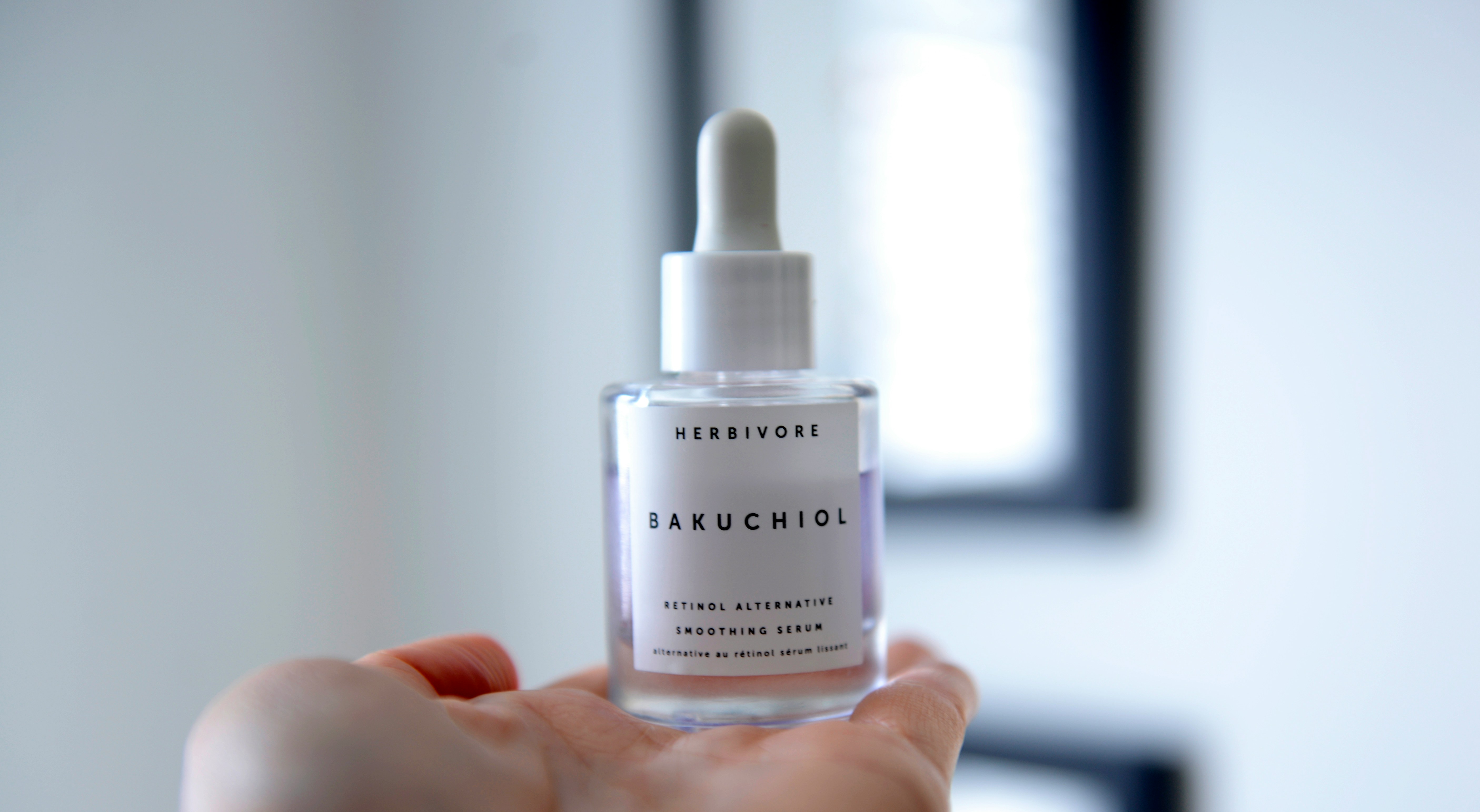
Do you need help finding the right time to incorporate retinol from the best skincare brands into your skincare routine? If so, you're not alone. With so many products and tips for enhancing your beauty, it can take time to know where to start.
Whether you're new to retinol or a seasoned user, selecting the right moment in your skincare regimen can make a big difference. So, what's the secret to getting it right? Well, you've come to the right place! In this guide, we'll dive into the when and how of incorporating the best retinol product into your skincare routine, helping you easily explore the complexities of skincare routines.
If you're looking to enhance your beauty using different beauty tips, then the GlowUp App is a valuable tool that can assist you. This app offers a range of features that help you improve your beauty routine, making achieving the desired results easier.
Table Of Contents
What Is Retinol?
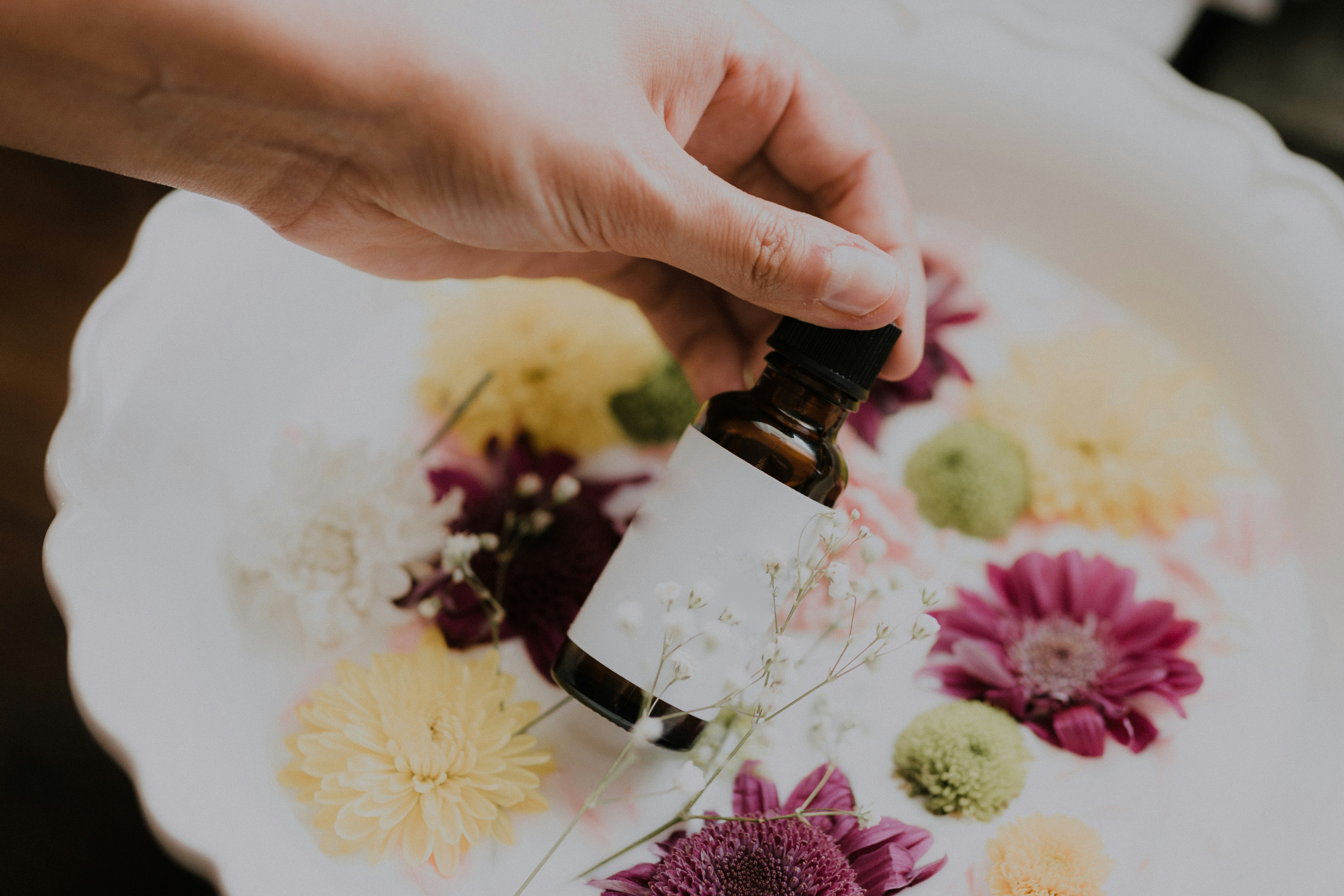
Retinol is a form of vitamin A with versatile skincare uses. It can treat acne and has anti-aging benefits. You can buy retinol over the counter without a prescription. Alternatively, it’s possible to consult your healthcare provider for advice on including retinol in your skincare regimen. Sometimes, your provider may suggest medications with higher retinoid concentrations than available over the counter. Typically, retinol is a topical treatment you apply to your skin directly. It comes in different forms, such as creams, gels, lotions, ointments, and serums. Additionally, retinol is an ingredient in cosmetic products.
Retinol is a form of vitamin A that plays a significant role in skincare. It is multifunctional in treating acne and combating aging effects. You can acquire retinol without a prescription or seek medical advice from your healthcare provider to determine the best way to incorporate it into your skincare routine.
Your provider may suggest prescription-strength medications containing higher retinoid concentrations than over-the-counter options. Retinol is a topical treatment that is applied directly to the skin. The vitamin A compound is available in various formats, including creams, gels, lotions, ointments, and serums. It is also a common ingredient in cosmetic products.
4 Benefits of Using Retinol For Your Skin

1. Acne
Retinol is your ally when it comes to combating acne. How so? It can keep your pores clear by reducing the buildup of skin cells. Check this out it can also block inflammation pathways in the skin, which is a fancy way of saying it doesn’t only have your back on reducing the number of breakouts you have. It can also dial down the redness and swelling that comes with them. So, say hello to fewer breakouts and less frustration.
2. Aging Support
Who doesn’t want to age gracefully? Skin cells naturally turn over, giving way to fresh cells underneath. But as you age, this process happens less often, leading to a duller complexion and the onset of fine lines and wrinkles at any age. That’s where retinol goes, superhero on us, speeding up this turnover process and giving you brighter, smoother skin. It dives deeper into the skin, encourages collagen production, and further plumps your skin, waving goodbye to dullness.
3. Sun Damage
Battle scars from sun damage? Retinol’s got your back. Its faster skin cell turnover can help improve skin tone, especially if you see signs of sun damage like wrinkles, fine lines, and hyperpigmentation. And it's not only that. Retinol can even bolster your skin, shielding it against further environmental damage. Just remember it can thin the top layer of your skin, making it more sensitive to sunlight. So, remember to apply sunscreen religiously.
4. The Extras
Are you feeling parched or dealing with keratosis pilaris? Dead skin cells could be the culprit. Retinol to the rescue! Removing those pesky dead cells can help you bid farewell to dry skin, leaving you with more hydrated skin. If you’re struggling with keratosis pilaris and its rough, bumpy skin texture, fret not—retinol can smooth things out. So, get ready to have smoother, happier skin.
Related Reading
• Luxury Skincare Brands
• Skincare For Combination Skin
• Korean Skincare Brands
• Best Skincare For Men
• Morning Skincare Routine
• Scarlett Johansson Skincare
• Skincare Routine For Oily Skin
• How To Layer Skincare
• Night Skincare Routine
• Best Skincare For Sensitive Skin
• Beginner Basic Skincare Routine
When Should You Start Using Retinol?

There are no strict guidelines regarding the age at which you should begin using retinol in your skincare routine. For anti-aging benefits, incorporating retinol in your routine during your 20s as a preventative measure is a good idea. On the other hand, if you are dealing with mild acne, consider using retinol even at a younger age.
It is worth noting that over-the-counter (OTC) retinol can be helpful for mild acne. However, some individuals experiencing breakouts might require a prescription-strength retinoid cream. These creams are FDA-approved for individuals aged 12 and older. Nevertheless, dermatologists may sometimes prescribe them off-label for children under 12.
Discover Your Archetype Beauty With Glowup AI
Glowup AI's glowup app helps you find how pretty you are and your archetype. Here’s how Glowup works:
1) Upload your photos,
2) Glowup AI will analyze your facial features,
3) Learn about insights into your most attractive traits and get personalized tips to highlight your beauty.
The Glowup app is your bespoke AI beauty guide, dedicated to helping you unlock your full aesthetic potential. Embrace the journey of self-discovery and enhancement with us. Find your pretty (ex., Bunny Pretty, Cat Pretty, Doe Pretty, Fox Pretty, etc.): Discover your archetype and lean in to highlight your beauty; discover your best traits.
Learn about your most desirable and attractive features; get Personalized Tips: Enhance your appearance with detailed advice catered to you. Find your pretty in seconds with our glowup app, Glowup AI. Download our free app from the App Store or Google Play.
When To Use Retinol In Skincare Routine
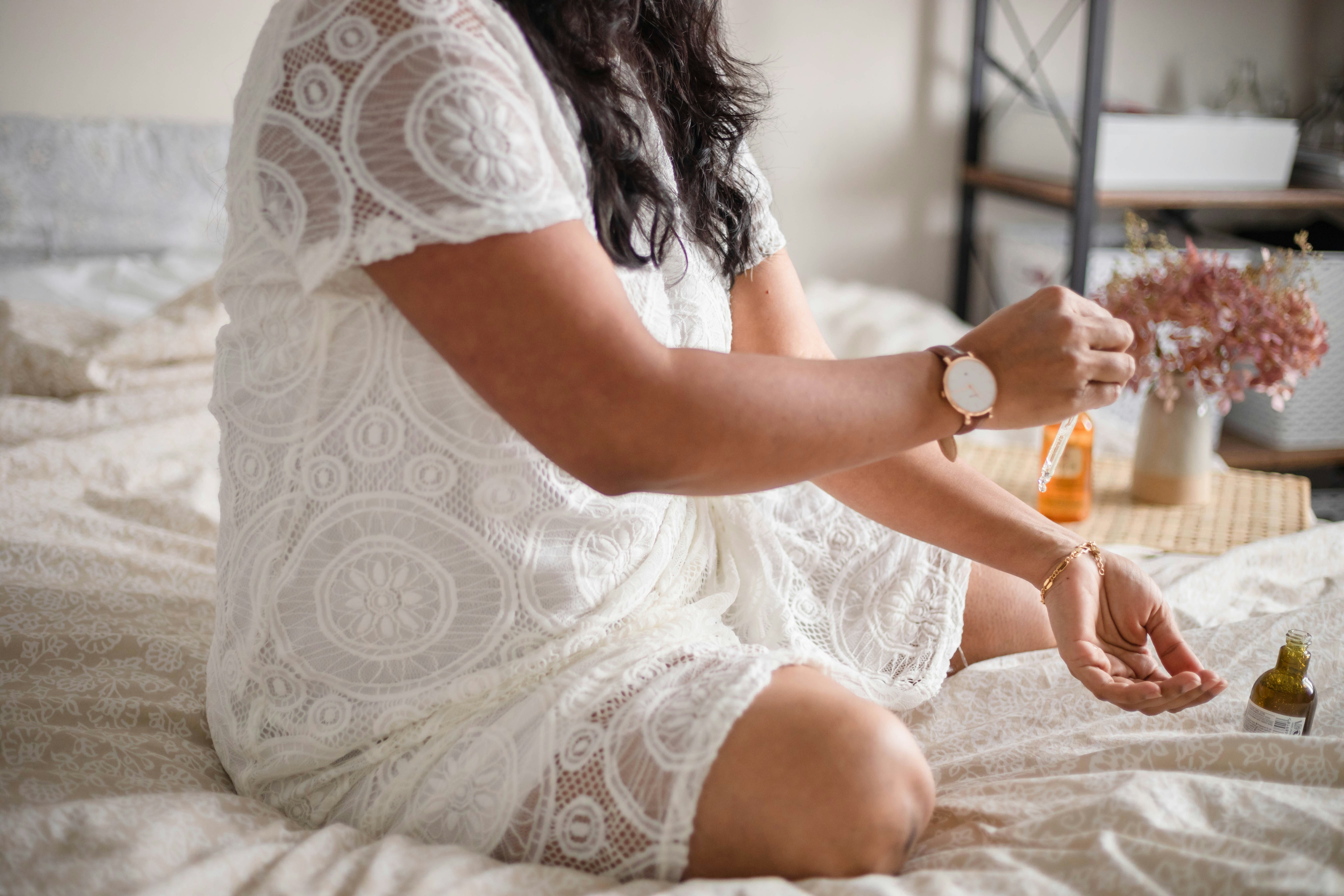
1. Starting Slow
Begin by using a low concentration of retinol two to three times per week. Gradually increase to nightly application as your skin adjusts. Allow at least 12 weeks to see results before considering a higher concentration.
2. Choosing Complementary Products
Hyaluronic acid can help offset the dryness and peeling effects of retinol. Incorporating it into your routine can reduce the side effects associated with retinol use.
3. Applying Moisturizer First
If your skin is red, dry, or irritated, moisturize before using retinol. Always start with a clean face and ensure it is dry before applying any treatment cream.
4. Nighttime Use
Retinol should always be used at night, as it can increase skin sensitivity to UV radiation. Apply sunscreen with SPF 30 in the morning to protect your skin from sun damage.
5. Enhancing with Vitamin C Serum
Vitamin C complements retinol and enhances anti-aging results. It can help even skin tone, reduce hyperpigmentation, and boost collagen production. Consider using vitamin C depending on your skin's tolerance to retinol.
Remember to stick to a consistent morning and nightly routine to maintain the effectiveness of your skincare products. As retinol makes the skin photosensitive, it is best reserved for nighttime use.
Side Effects of Using Retinol
When you start incorporating retinol into your skincare routine, you may experience side effects as your skin adjusts to the ingredients. These side effects include dryness, redness, and itchiness. It's important to note that more potent retinoids may cause more severe effects, but even retinol can lead to these side effects, especially if you use multiple products containing retinoids.
These side effects typically diminish within a few weeks of consistent use. If you don't see any improvement, it's vital to consult with a healthcare professional and discontinue use. Individuals with darker skin should be cautious, as irritation from retinol could potentially result in hyperpigmentation. When using any retinoid product, avoid prolonged exposure to direct sunlight and apply sunscreen with a minimum SPF of 30 daily.
Can All Skin Types Use Retinol?
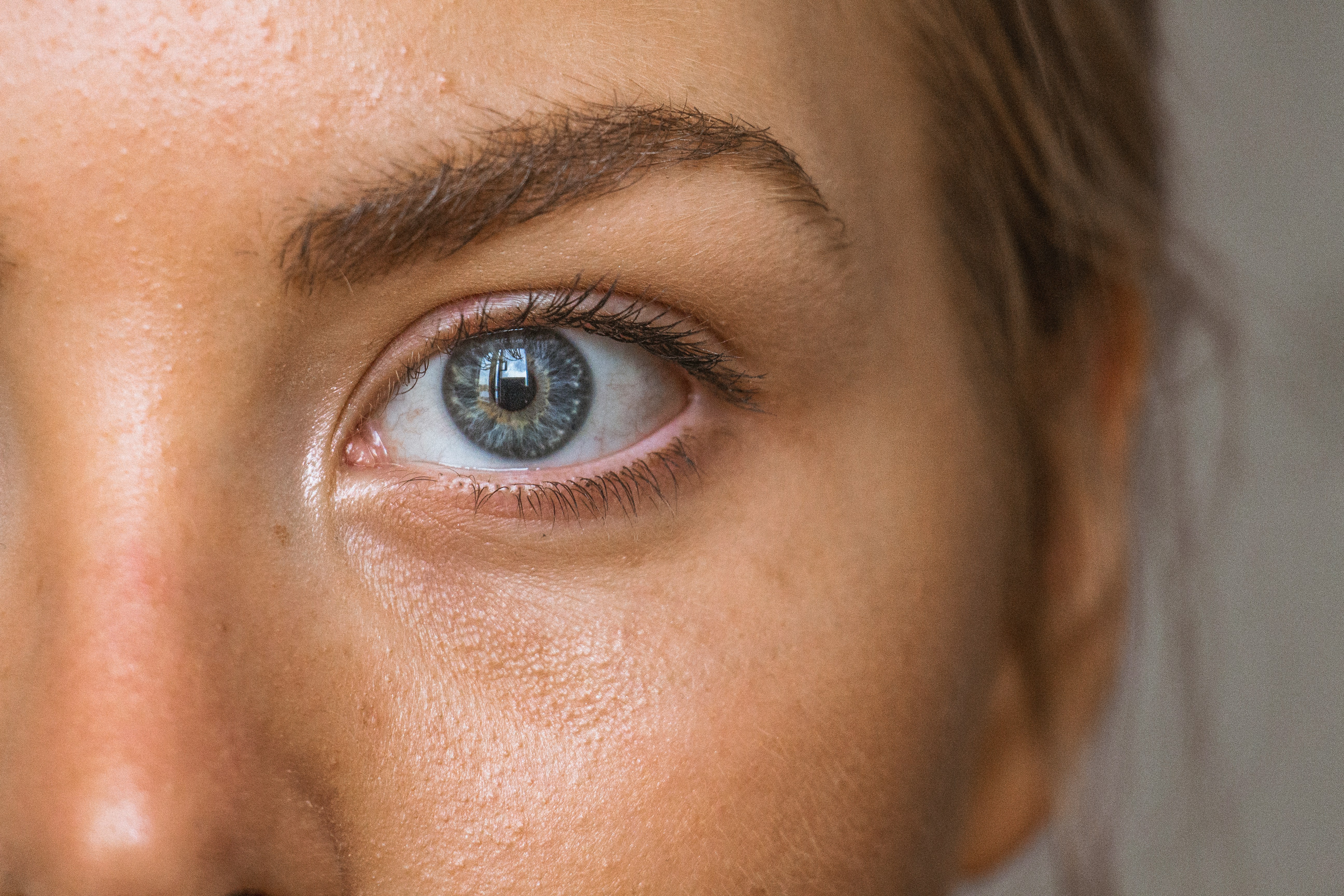
Retinol is a versatile ingredient that can be incorporated into most skincare routines. However, it is essential to consider the needs and characteristics of your skin before diving headfirst into using it. Any skin type and skin tone can use the ingredient, but sensitive skin types should be extra cautious. It tends to be more challenging for reactive and allergic skin to adjust.
Mizen doesn't recommend it for people with overexfoliated skin (from at-home or in-office treatments) or sun-damaged skin. Retinol can increase the skin's sensitivity to the sun, and pregnant people should not use it.
Related Reading
• Winter Skincare Routine
• German Skincare Brands
• Katie Fang's Skincare Routine
• When To Use Ice Roller In Skincare Routine
• Japanese Skincare Routine
• Hailey Bieber Skincare Routine
• Korean Skincare Routine Day And Night
• Why Is Korean Skincare So Good
• Japanese Skincare Brands
• What Is Essence Skincare
• 10 Step Skincare Routine
• Best Skincare Routine For Aging Skin
• How Long Does It Take for Skincare To Work
• When To Use Vitamin C In Skincare Routine
• What Is Medical Grade Skincare
• Teen Skincare Routine
• French Skincare Routine
How Often To Use Retinol?

Once your skin has adapted to retinol, you can apply it daily. You can increase the potency by using a higher concentrated formula or requesting a prescription for tretinoin (a stronger retinoid) from your dermatologist.
Before this can happen, you should ease into usage to help minimize some of the side effects listed above. Think of it more as a marathon versus a sprint, says Kseniya Kobets, MD, a board-certified cosmetic dermatologist and assistant professor of Dermatology at Montefiore-Einstein.
I recommend you use a lower strength or over-the-counter retinol to see how your skin responds,” Dr. Kobets says. “Start by applying a pea-sized amount on top of a moisturizer about once a week [in the evenings]. It’s better to use once a week for several months than to experience skin irritation from daily use and being forced to stop due to intolerance.
Even at this low frequency, you may experience some of the subtle side effects mentioned above. Once your skin adapts to the product you’re using, these side effects will subside. That’s a sign that you can increase your retinol application frequency to several times a week, every other day, and eventually daily (if desired).
Discover Your Archetype Beauty With GlowUp AI
Glowup AI's glowup app helps you find how pretty you are, and it enables you to find your archetype. Here’s how Glowup works:
1) Upload your photos,
2) Glowup AI will analyze your facial features,
3) Learn about insights into your most attractive traits and get personalized tips to highlight your beauty.
The Glowup app is your bespoke AI beauty guide, dedicated to helping you unlock your full aesthetic potential. Embrace the journey of self-discovery and enhancement with us. Find your pretty (ex., Bunny Pretty, Cat Pretty, Doe Pretty, Fox Pretty, etc.): Discover your archetype and lean in to highlight your beauty. Discover your best traits: Learn about your most desirable and attractive features. Get Personalized Tips: Enhance your appearance with detailed advice catered to you. Find your pretty in seconds with our glowup app. Glowup AI downloads our free app from the App Store or Google Play.
10 Best Retinol Serums and Creams To Try
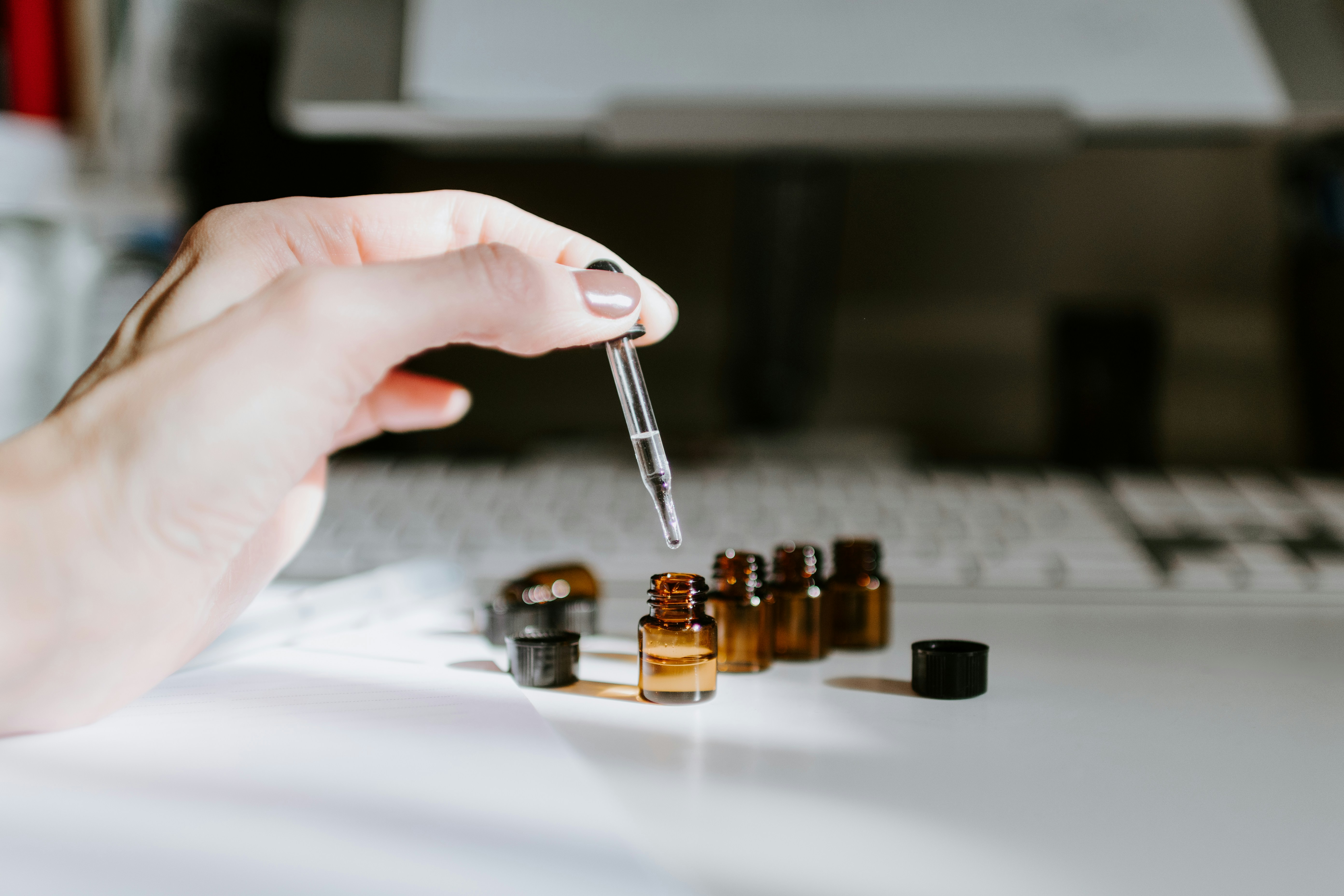
1. Medik8 Crystal Retinal Stable Night Serum
Medik8 Crystal Retinal Stable Night Serum is an advanced skincare product. This iconic vitamin A night serum is clinically proven to smooth stubborn wrinkles visibly, brighten dark spots, and decongest and firm your skin, all without causing any irritation.
The secret sauce of this serum lies in the inclusion of retinAL, a next-generation vitamin A that works a remarkable 11 times faster than standard retinol. Its patented retinal stability system sets this serum apart, which ensures unmatched retinal potency and effectiveness until the last drop.
2. Kiehl's Micro-Dose Anti-Aging Retinol Serum
Kiehl's Micro-Dose Anti-Aging Retinol Serum is formulated with a precisely calculated microdose of retinol, although the brand doesn’t specify the exact amount. This serum has been proven to produce visible results in just around two weeks.
Adding skin-soothing ceramides and peptides ensures a healthy and thriving skin barrier. Testers have given this serum excellent marks across the board, praising it for smoothing, firming, hydrating, plumping, clearing acne breakouts, and enhancing radiance without causing any irritation.
3. Dermalogica Retinol Clearing Oil
Dermalogica Retinol Clearing Oil is a powerful serum powered by a lipid-based delivery system. This system actively nourishes the skin with skin-mimicking phytoactive lipids from Argan, Rosehip Seed, and golden jojoba oils.
The slow-release retinol in this serum works all night to optimize skin recovery and reduce the appearance of fine lines, wrinkles, and hyperpigmentation. Additionally, salicylic acid, a beta-hydroxy acid (BHA), helps target active breakouts and clear the skin effectively.
4. Neutrogena Rapid Wrinkle Repair Serum
Neutrogena Rapid Wrinkle Repair Serum is a fantastic option for those looking to smooth fine lines and target dark under-eye circles. This serum's lightweight consistency leaves your skin looking fresh and even-toned. Unlike some formulas that should only be used at night, this serum can double as a hydrating makeup primer.
5. FaceTheory Regena-C Moisturiser with Retinol
FaceTheory Regena-C Moisturiser with Retinol is a soothing moisturizer that targets fine lines and blemishes. It also contains hyaluronic acid and vitamins C and E to hydrate and brighten the skin. This excellent combination ensures your skin is nourished, deeply moisturized, and radiant.
6. Drunk Elephant A-Gloei Retinol Oil
Drunk Elephant A-Gloei Retinol Oil is perfect for those with sensitive skin. This serum features a gentle yet effective retinol concentration of 0.5% and includes reparative marula oil. The marula oil is rich in antioxidants and fatty acids, providing nourishment and soothing benefits to the skin.
7. Elizabeth Arden Retinol Ceramide Capsules Line Erasing Night Serum
Elizabeth Arden Retinol Ceramide Capsules Line Erasing Night Serum is a powerful booster for improving skin’s texture and tone, visibly reducing fine lines and wrinkles. This concentrate contains encapsulated retinol, protecting the reactive retinol from air and light and ensuring its efficacy.
Ceramides in this serum help replenish the skin’s natural ceramides, supporting the moisture barrier. Peptides smooth wrinkles, even skin tone, and improve elasticity, while Avocado, Sunflower Seed, and Olive Oils moisturize and condition the skin.
8. First Aid Beauty 0.3% Retinol Complex Face Serum with Peptides
First Aid Beauty 0.3% Retinol Complex Face Serum with Peptides has a luxurious texture described as “featherweight” and “cloud-like.” This serum absorbs into the skin in 30 seconds, saving time for your skincare routine. The formula is so skin-smoothing that you only need to follow up with a light moisturizer.
9. Medik8 r-Retinoate Youth Activating Cream Intense
Medik8 r-Retinoate Youth Activating Cream Intense sets new standards for age-defying excellence. This cream delivers noticeably firmer, smoother, and brighter-looking skin, significantly reducing wrinkles and dark spots in just 4 weeks.
The formula is 8 times stronger and 11 times faster than classic retinol. It combines 5 of Medik8's most advanced age-defying technologies in one extraordinary nighttime cream, providing everything your skin needs for astonishing youth-renewing results.
10. Murad Retinal ReSculpt Overnight Treatment
Murad Retinal ReSculpt Overnight Treatment contains retinal, a vitamin A derivative that is 10 times stronger than retinol. This option provides faster results without any dryness or flaking. The serum has been praised for its ability to deliver dramatic results without causing any irritation, making it a solid choice for anyone looking to revamp their skincare routine.
Discover Your Archetype and Find Out What Pretty You Are With Glowup AI
Knowing when to use retinol in your skincare routine can be a game-changer for your complexion. Retinol is a powerhouse ingredient that can help reduce the appearance of fine lines and wrinkles, improve skin texture, and even improve skin tone. But you may not get the full benefits if you're not using it correctly. Here's a quick guide on when to use retinol in your skincare routine and how to make the most of this potent ingredient.
How Does Retinol Work?
Retinol, a vitamin A derivative, promotes skin cell turnover and boosts collagen production. This helps to fade dark spots, reduce the appearance of wrinkles, and improve overall skin texture. However, it can also cause irritation and dryness, especially when first using it. This is why using retinol correctly and in the right part of your skincare routine is vital.
When to Use Retinol in Your Skincare Routine
The best time to use retinol is after cleansing and toning your skin at night. This is because retinol can make your skin more sensitive to the sun, and using it during the day can increase your risk of sunburn. Start by using retinol two to three times a week, gradually increasing the frequency as your skin adjusts. If you experience irritation, redness, or peeling, scale back on how often you use retinol or switch to a lower concentration.
How to Incorporate Retinol into Your Skincare Routine
To incorporate retinol into your skincare routine, start cleansing and toning your skin. Wait a few minutes for your skin to dry completely, then apply a pea-sized amount of retinol to your face and neck. Follow up with a moisturizer to help minimize irritation and dryness. If you're using other active ingredients like AHAs or BHAs, it's best to use them in a separate part of your routine, either in the morning or on nights when you're not using retinol.
Incorporating Retinol with Other Skincare Ingredients
Incorporating retinol with other skincare ingredients can maximize its benefits. For example, using retinol in combination with hyaluronic acid can help hydrate your skin and minimize irritation. However, using retinol with other active ingredients like AHAs or BHAs can increase your risk of irritation, so it's best to introduce these ingredients slowly and gradually to your routine.
Can You Use Retinol Every Night?
While some people can use retinol every night without experiencing irritation, others may find this frequency too harsh for their skin. If you're new to retinol, use it two to three times a week and gradually increase the frequency as your skin adjusts. If you're already using retinol every night and experiencing irritation, redness, or peeling, consider scaling back on how often you use retinol or switching to a lower concentration.
Find you pretty in seconds with our Glowup AI glowup app. Download our Glowup AI free from the App Store or Google Play.
Related Reading
• European Skincare Brands
• Vitamin B5 Benefits For Skin
• Best French Skincare Brands
• Anne Hathaway Skincare Routine
• Skincare Routine For 30S
• Celebrity Skincare Brands
• When To Use Face Mist In Skincare Routine
• When To Gua Sha In Skincare Routine
• When To Use Toner In Skincare